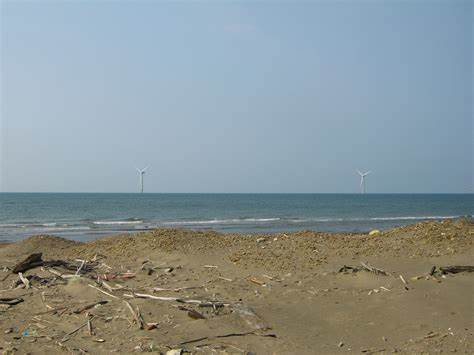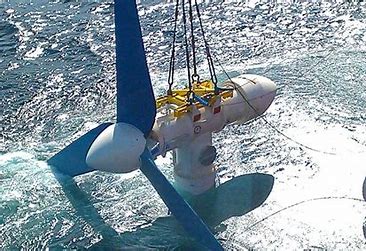
Introduction
Ocean energy projects have gained significant attention in recent years due to their potential to provide renewable and sustainable energy sources. However, not all projects in this field have been successful. This article provides an overview of the importance of studying failed ocean energy projects and the lessons that can be learned from them.
Historical Background
The history of ocean energy projects dates back several decades, with attempts made to harness the power of the oceans for energy generation. However, many of these projects have faced challenges and ultimately failed. It is crucial to examine these failed projects to understand their impact on the industry and identify lessons that can be learned from them.
Key Concepts and Definitions
To fully understand the significance of failed projects, it is essential to define and explain the concept of ocean energy and failed projects. Ocean energy refers to the renewable energy derived from the ocean’s resources, such as waves, tides, and currents. Failed projects, in this context, refer to initiatives that did not achieve their intended goals or faced significant obstacles leading to their termination.

Main Discussion Points
Factors contributing to the failure of ocean energy projects
Several factors can contribute to the failure of ocean energy projects. Technical challenges and limitations, such as inefficient designs or unreliable technologies, can hinder project success. Additionally, environmental and regulatory hurdles, including inadequate research on environmental impacts and complex permitting processes, can present significant barriers. Economic and financial constraints, such as high capital costs and limited funding opportunities, can also impede project development. Furthermore, lack of public acceptance and support can undermine the viability of ocean energy projects.
Lessons learned from failed ocean energy projects
Failed ocean energy projects offer valuable lessons for the industry. Identifying and addressing technical challenges through research and development can lead to improved designs and more reliable technologies. Enhancing project planning and management, including comprehensive feasibility studies and risk assessments, can prevent potential pitfalls. Collaboration and knowledge sharing among stakeholders, such as governments, industry players, and research institutions, can foster innovation and accelerate project success. Incorporating environmental considerations and sustainability principles from the outset can ensure long-term viability and minimize adverse impacts.
Importance of failure analysis and knowledge transfer
Analyzing the root causes of failures is crucial for the advancement of ocean energy projects. Failure data can provide valuable insights for future project development, enabling industry stakeholders to avoid past mistakes and make informed decisions. Sharing experiences and lessons learned can stimulate innovation and technological advancements, promoting the overall growth and success of the ocean energy sector.
Case Studies or Examples
Case study: The Wave Hub project in Cornwall, UK
The Wave Hub project in Cornwall, UK, aimed to create a grid-connected test site for wave energy devices. However, the project faced numerous technical and financial challenges, eventually leading to its failure. Lessons learned from this case study include the importance of comprehensive project planning, addressing technical uncertainties through testing and research, and ensuring sufficient funding for long-term operations and maintenance.

Case study: The Pelamis Wave Energy Converter project in Scotland
The Pelamis Wave Energy Converter project in Scotland aimed to harness wave energy through a unique device design. However, the project encountered challenges related to the reliability and economic viability of the technology, leading to its eventual failure. This case study highlights the significance of thorough technology assessment and validation, as well as the need for continuous research and development in the ocean energy sector.
Current Trends or Developments
The field of ocean energy is constantly evolving, with new trends and developments emerging. Recent advancements include the development of innovative technologies, such as floating offshore wind turbines and hybrid systems combining multiple renewable energy sources. Successful projects, such as the MeyGen tidal energy project in Scotland, demonstrate the potential of ocean energy as a viable alternative to traditional energy sources. Ongoing research efforts aim to further improve project efficiency, reduce costs, and address environmental concerns.
Challenges or Controversies
Addressing controversies surrounding the evaluation and sharing of failed project data
Controversies exist regarding the evaluation and sharing of failed project data. Some stakeholders argue for more transparency and knowledge exchange, emphasizing the importance of learning from failures. Others may hesitate to disclose project failures due to concerns over reputation or intellectual property. Finding a balance between accountability and confidentiality is essential to foster a culture of shared learning and continuous improvement.
Discussing challenges in securing funding and support for innovative projects
Securing funding and support for innovative ocean energy projects can be challenging. Limited access to capital and financial incentives, as well as uncertainties surrounding project returns, pose obstacles to project development. Engaging with policymakers, investors, and financial institutions to create supportive frameworks and mechanisms can help overcome these challenges and accelerate the deployment of ocean energy technologies.

Presenting differing viewpoints regarding the interpretation of failures and the subsequent application of lessons learned
Views on the interpretation of failures and the application of lessons learned can vary among stakeholders. Some may argue for a cautious approach, emphasizing the need to thoroughly understand the causes of failures before implementing changes. Others may advocate for a more proactive approach, encouraging rapid adaptation and innovation. Balancing these differing viewpoints is crucial to ensure effective learning and continuous improvement in the ocean energy sector.
Future Outlook
Looking ahead, learning from failed ocean energy projects will play a pivotal role in shaping the industry and informing policy decisions. Advancements in technology, driven by the lessons learned, are expected to improve overall project success rates. Ongoing research efforts and collaborations will contribute to further innovation and the development of more efficient and sustainable ocean energy solutions. The lessons learned from failed projects will continue to guide future initiatives, fostering a more resilient and successful ocean energy sector.
Conclusion
In conclusion, studying failed ocean energy projects is of paramount importance for the growth and success of the sector. Lessons learned from these failures can guide future projects, support innovation, and promote sustainable practices. By addressing challenges, sharing knowledge, and embracing failures as opportunities for improvement, the ocean energy industry can pave the way towards a more sustainable and renewable energy future.




